
Weldol SP 100mg/325mg/15mg Tablet
Manufacturer
Wellix Healthcare
Salt Composition
Aceclofenac (100mg) + Paracetamol (325mg) + Serratiopeptidase (15mg)
Key Information
Short Description
Weldol SP 100mg/325mg/15mg Tablet is a combination medicine used to relieve pain and swelling in various conditions like muscle pain, joint pain, and postoperative pain.
Dosage Form
Tablet
Introduction
Weldol SP 100mg/325mg/15mg Tablet is a combination medicine used to relieve pain and swelling in various conditions like muscle pain, joint pain, and postoperative pain. Thus, it effectively alleviates pain and inflammation in conditions like rheumatoid arthritis, ankylosing spondylitis, and osteoarthritis.
Directions for Use
Take this medicine in the dose and duration as advised by your doctor.Swallow it as a whole. Do not chew, crush or break it.Take it with food
How it works
Weldol SP 100mg/325mg/15mg Tablet is a combination of three medicines: Aceclofenac, Paracetamol and Serratiopeptidase.Aceclofenac is a non-steroidal anti-inflammatory drug (NSAID) and Paracetamol is an antipyretic (fever reducer).They work by blocking the release of certain chemical messengers in the brain that cause pain and fever.Serratiopeptidase is an enzyme which works by breaking down abnormal proteins at the site of inflammation and promotes healing
Quick Tips
Take it with food to avoid getting an upset stomach It may cause dizziness and sleepiness. Do not drive or do anything that requires mental focus until you know how Weldol SP 100mg/325mg/15mg Tablet affects you Avoid consuming alcohol when taking Weldol SP 100mg/325mg/15mg Tablet as it may cause excessive drowsiness and increase the risk of liver damage Do not take it with any other medicine containing acetaminophen (drugs for pain/fever or cough-and-cold) without asking your doctor first
Related Medicines
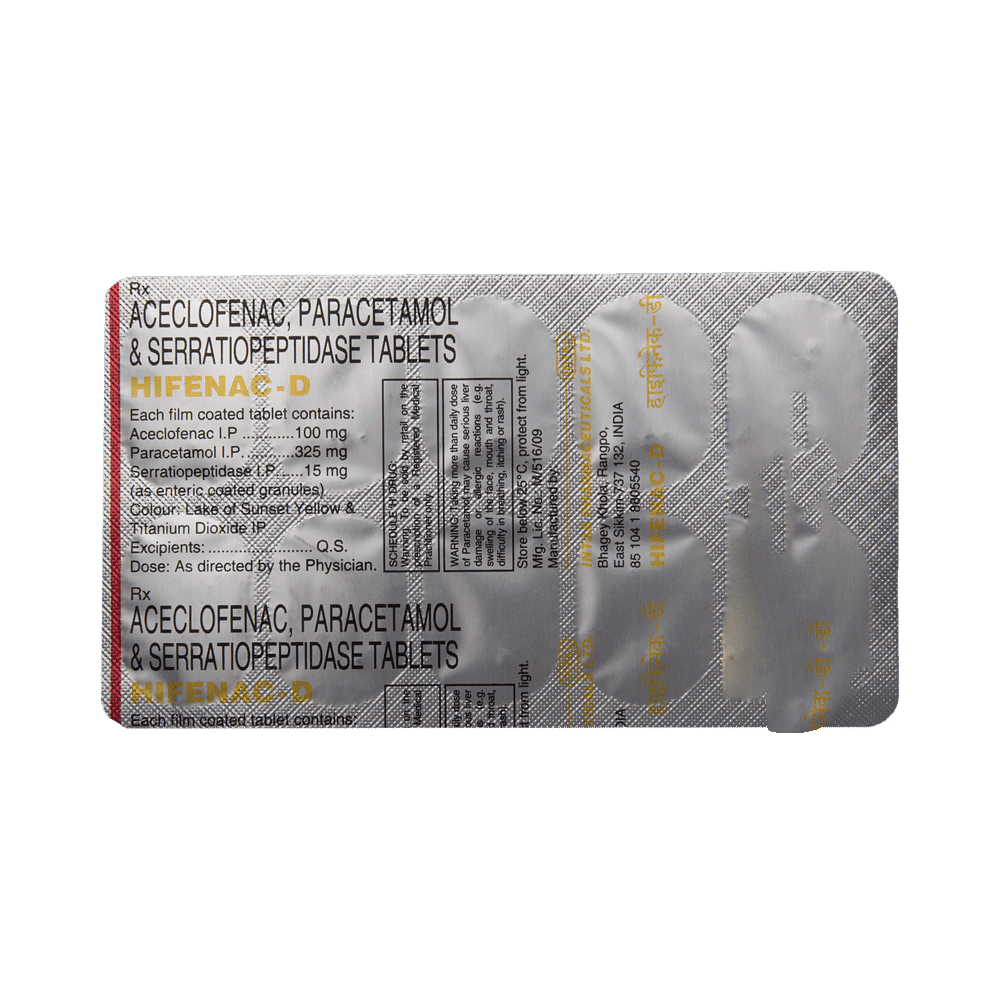
Hifenac-D Tablet
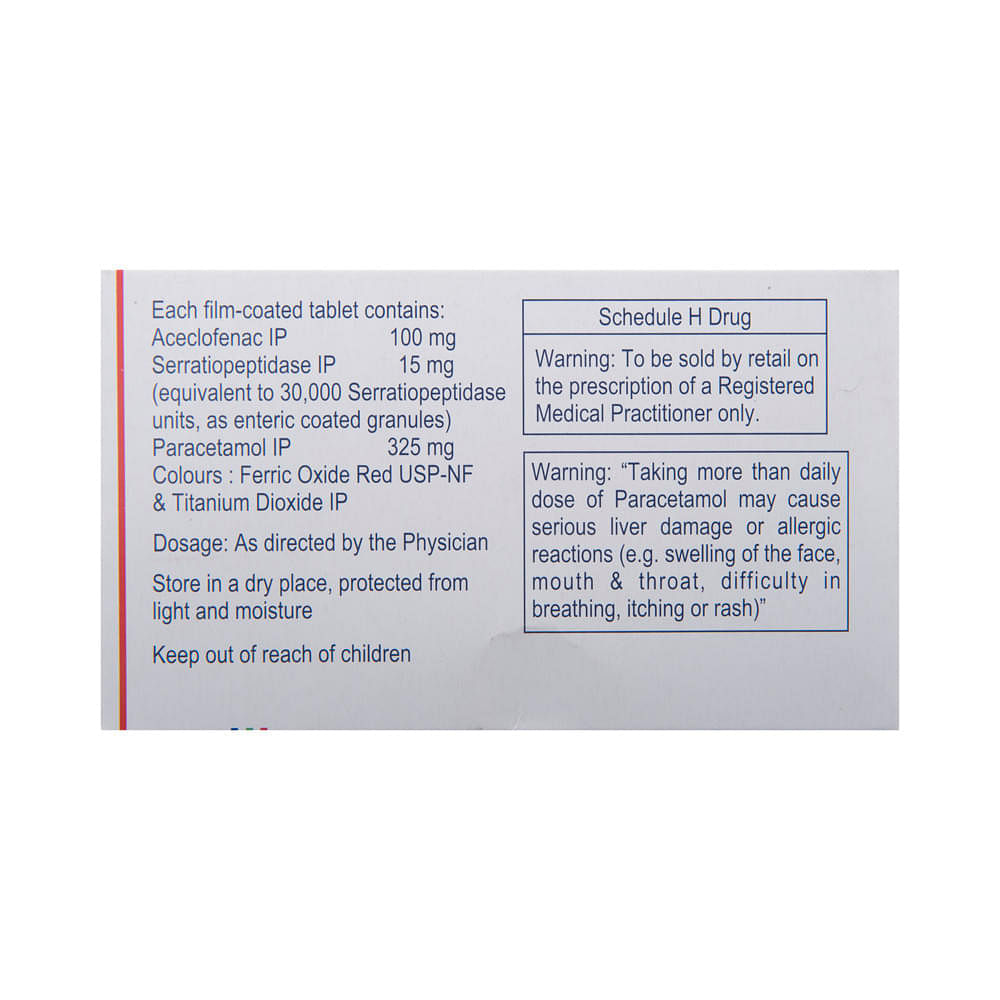
Zerodol-SP Tablet
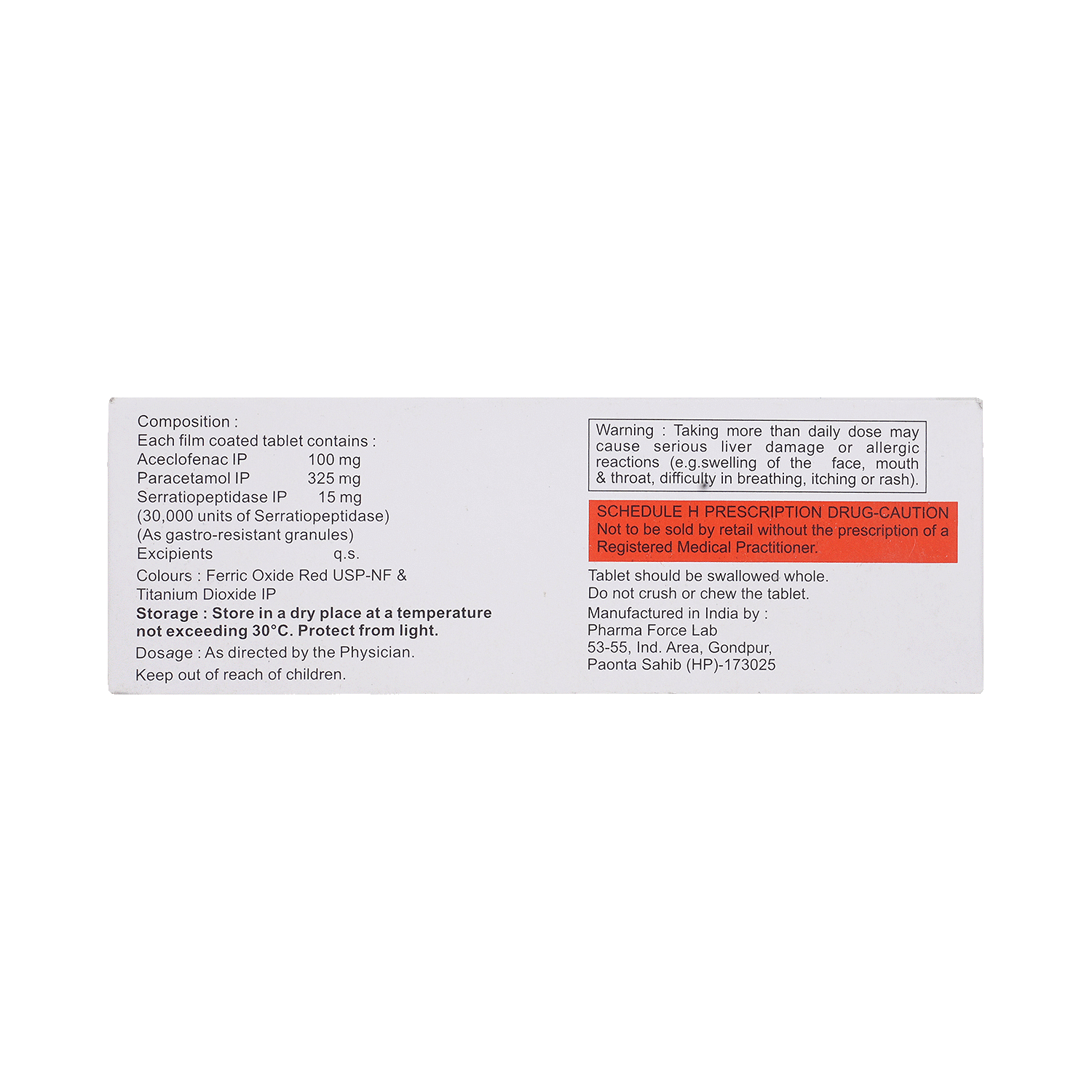
Dolokind-AA Tablet
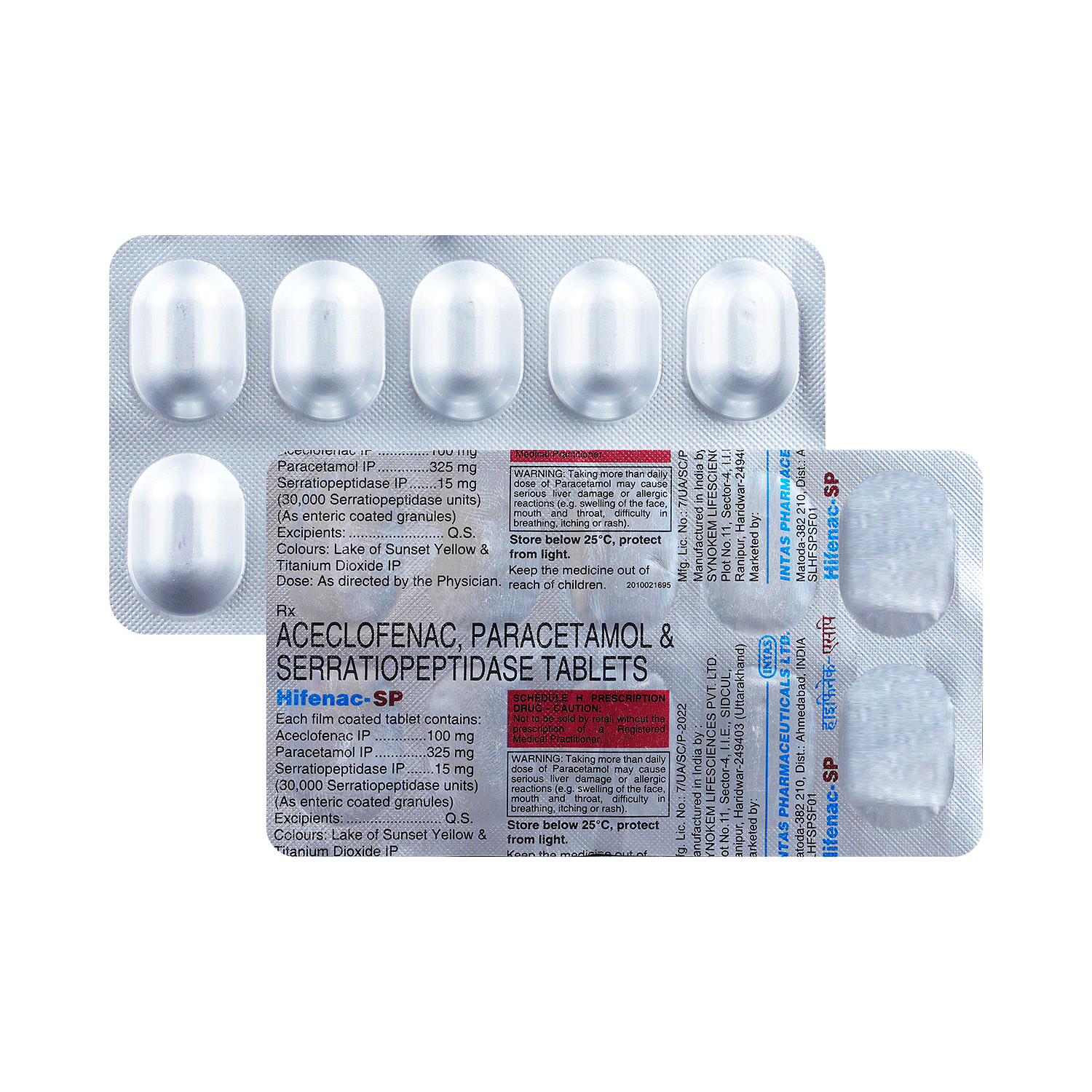
Hifenac-SP Tablet
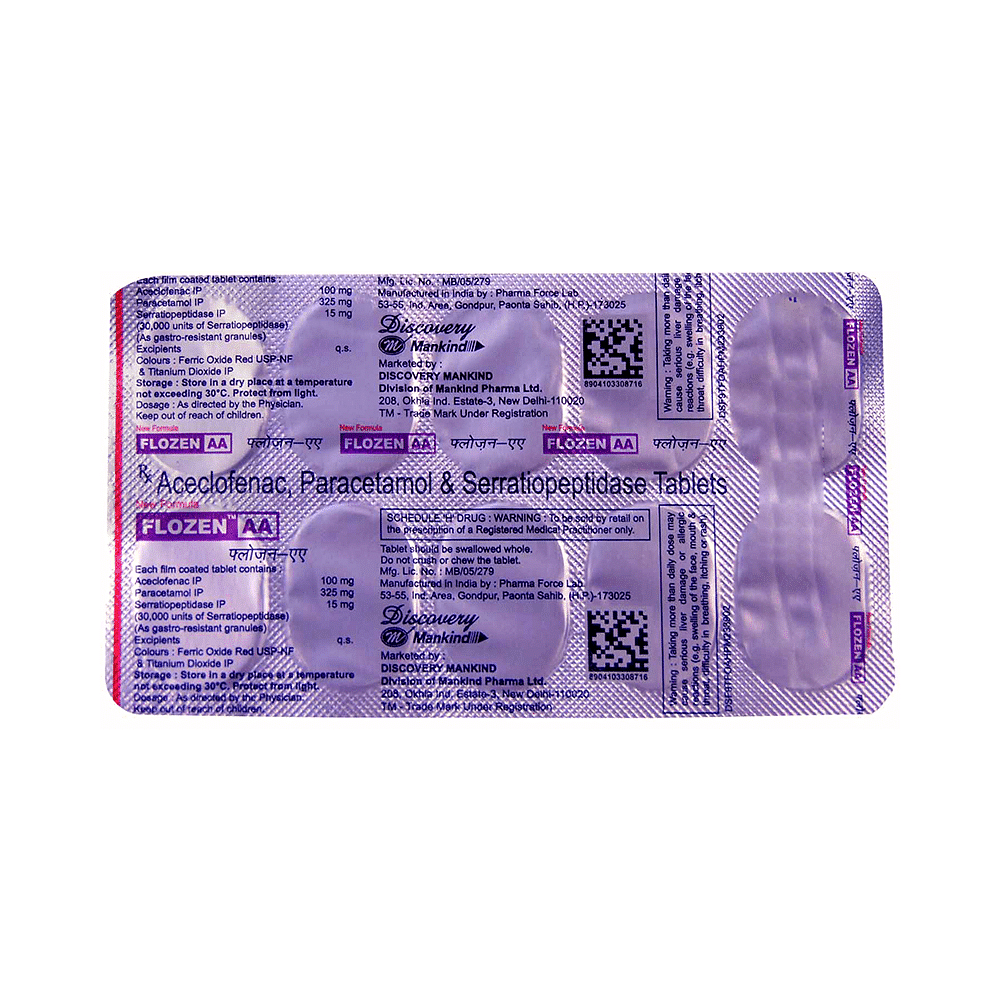
Flozen-AA Tablet

Erinac SP 100mg/325mg/15mg Tablet

Muclonac SP 100mg/325mg/15mg Tablet
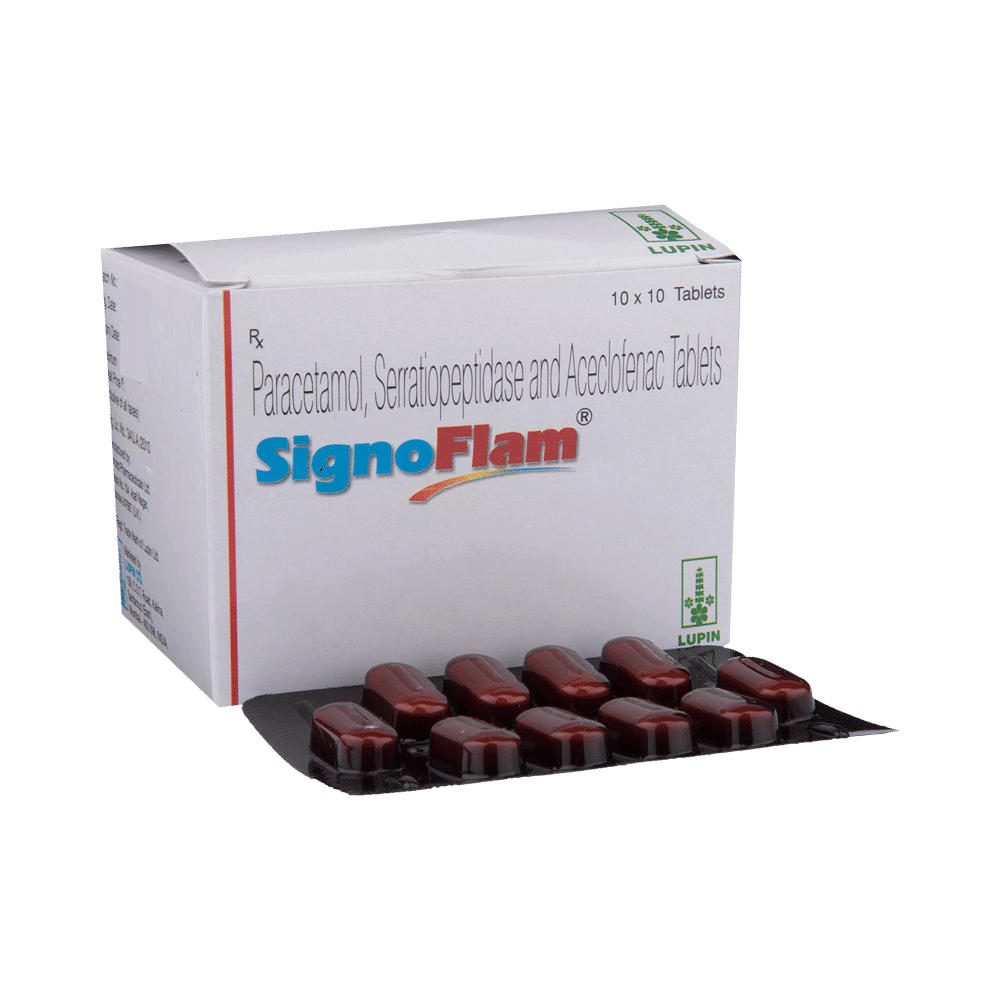
Signoflam Tablet
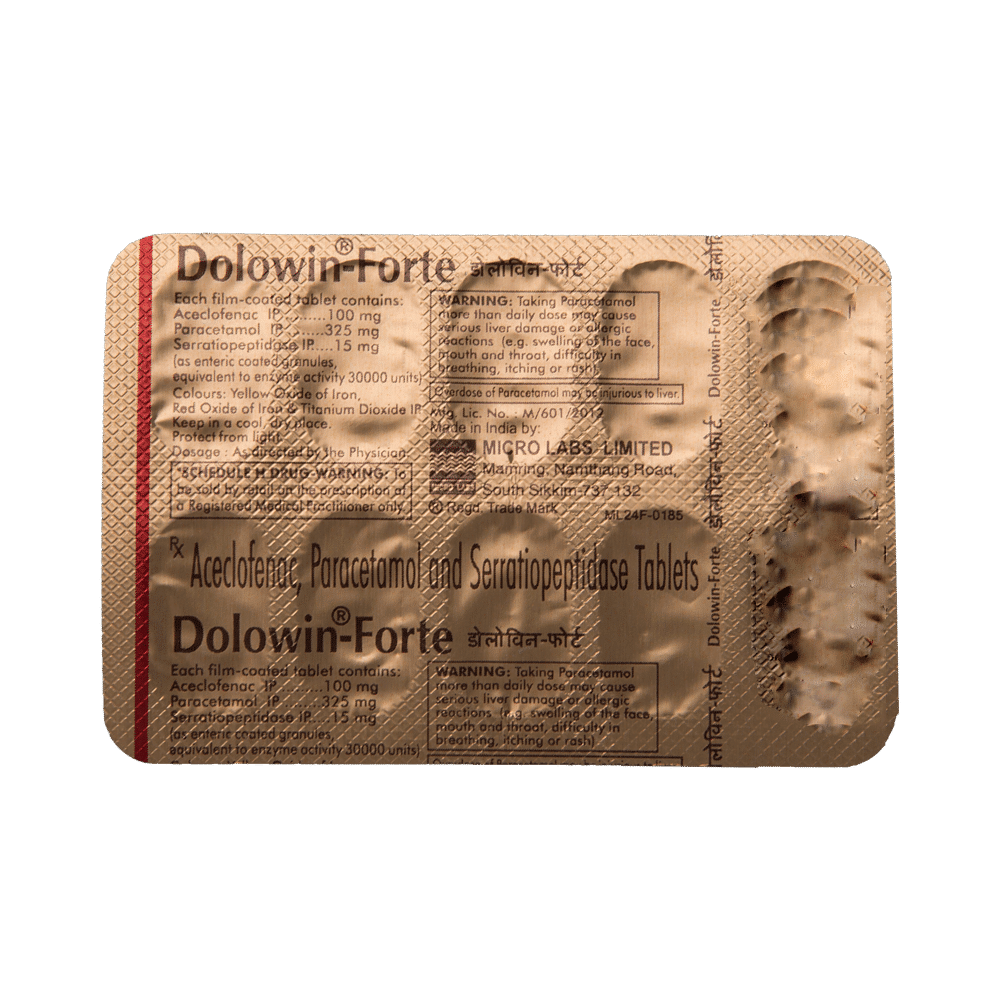
Dolowin-Forte Tablet
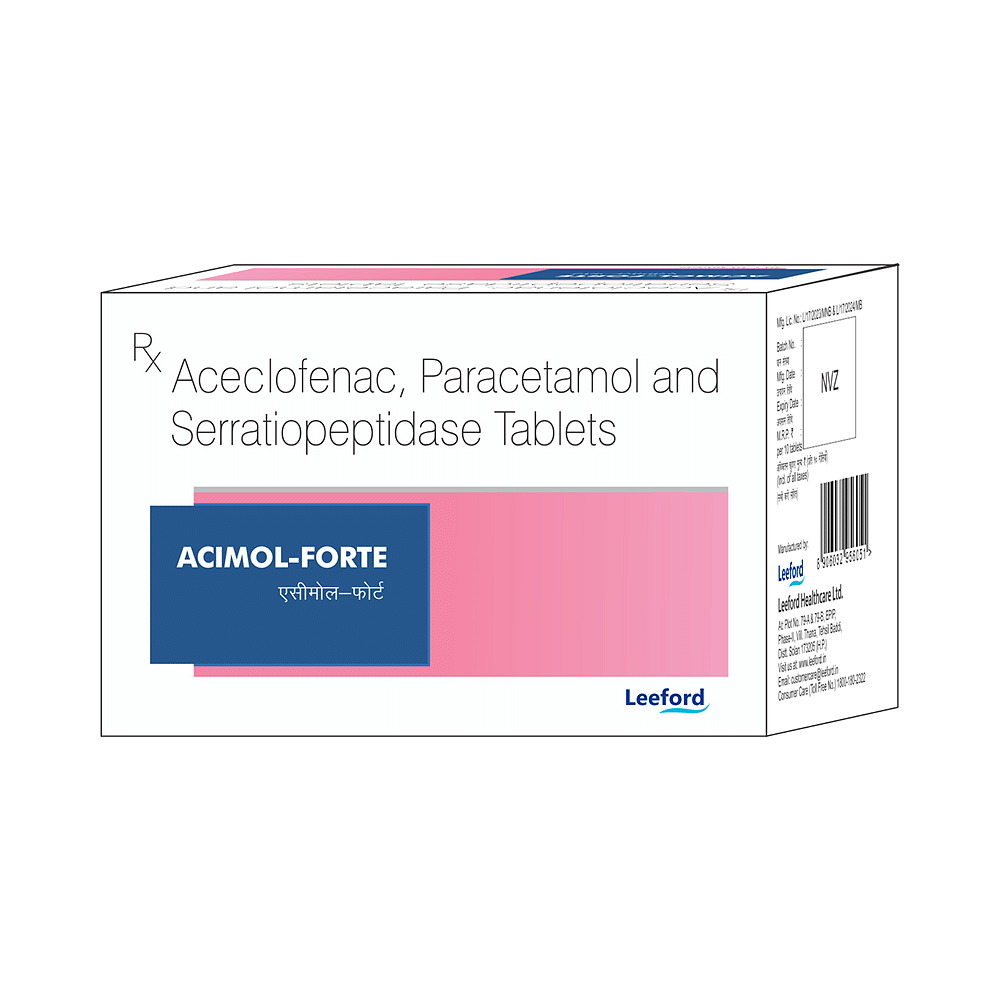
Acimol-Forte Tablet
Frequently asked questions
What is Weldol SP 100mg/325mg/15mg Tablet?
Weldol SP 100mg/325mg/15mg Tablet is a combination of three medicines: Aceclofenac, Paracetamol, and Serratiopeptidase. This medication helps in relieving pain and inflammation by lowering the levels of chemical substances in the body that cause pain and inflammation.
Is it safe to take Weldol SP 100mg/325mg/15mg Tablet?
Weldol SP 100mg/325mg/15mg Tablet is generally considered safe for most patients. However, it may cause unwanted side effects like nausea, vomiting, stomach pain, heartburn, and diarrhea in some patients. If you experience any persistent problem due to the medication, inform your doctor as soon as possible.
Can I stop taking Weldol SP 100mg/325mg/15mg Tablet when my pain is relieved?
Weldol SP 100mg/325mg/15mg Tablet is usually used for the short term and can be discontinued when your pain is relieved. However, continued taking it if your doctor has advised you to do so.
Can Weldol SP 100mg/325mg/15mg Tablet cause nausea and vomiting?
Yes, the use of Weldol SP 100mg/325mg/15mg Tablet can cause nausea and vomiting. In case you experience nausea while taking this medicine, take it with milk, food, or with antacids. Avoid taking fatty or fried foods along with this medication. In case of vomiting, drink plenty of water or other fluids by taking small frequent sips. Talk to your doctor if vomiting persists and you notice signs of dehydration, like dark colored and strong-smelling urine and a low frequency of urination. Do not take any other medicines without speaking to your doctor.
Can Weldol SP 100mg/325mg/15mg Tablet cause dizziness?
Yes, the use of Weldol SP 100mg/325mg/15mg Tablet can cause dizziness (feeling faint, weak, unsteady or lightheaded) in some patients. If you feel dizzy or lightheaded, it is better to rest for sometime and resume once you feel better.
Are there any specific contraindications associated with taking Weldol SP 100mg/325mg/15mg Tablet?
The use of Weldol SP 100mg/325mg/15mg Tablet is considered harmful for patients with known allergy to any of the components or excipients of this medicine or in patients with known allergy to other painkillers (NSAIDs). Its use should preferably be avoided in patients with a history of stomach ulcers or in patients with active, recurrent stomach ulcers/bleeding. It should also be avoided in patients with a history of heart failure, high blood pressure, and liver or kidney disease.
Can I take Weldol SP 100mg/325mg/15mg Tablet with vitamin B-complex?
Yes, Weldol SP 100mg/325mg/15mg Tablet can be taken with vitamin B-complex preparations. While it helps to relieve pain, vitamin B-complex can help to correct the vitamin deficiency that might be causing your symptoms.
Can the use of Weldol SP 100mg/325mg/15mg Tablet cause damage to kidneys?
Yes, long-term use of Weldol SP 100mg/325mg/15mg Tablet can cause damage to the kidneys. Normal kidneys produce a chemical called prostaglandins that protect them from damage. The use of painkillers lowers the levels of prostaglandins in the body, which leads to kidney damage on long-term use. The use of painkillers is not recommended in patients with underlying kidney disease.
Can I take a higher dose of Weldol SP 100mg/325mg/15mg Tablet than recommended?
No, taking a higher than recommended dose can lead to increased chances of side effects. If you are experiencing increased severity of pain or the pain is not relieved by the recommended doses, please consult your doctor for re-evaluation.
What are the instructions for storage and disposal of Weldol SP 100mg/325mg/15mg Tablet?
Keep this medicine in the packet or the container it came in, tightly closed. Store it according to the instructions mentioned on the pack or label. Dispose of the unused medicine. Make sure it is not consumed by pets, children, and other people.


